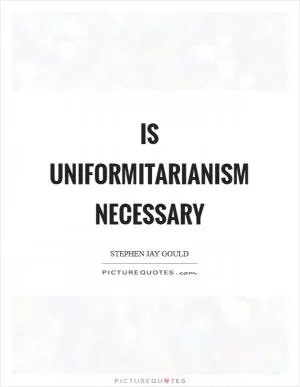Current utility and historical origin are different subjects

Current utility and historical origin are different subjects
Stephen Jay Gould, a renowned paleontologist, evolutionary biologist, and historian of science, was a prominent figure in the field of evolutionary biology. Throughout his career, Gould made significant contributions to our understanding of the history of life on Earth and the mechanisms of evolution. One of the key concepts that Gould often discussed was the idea that current utility and historical origin are different subjects.Gould argued that the current utility of a biological trait or feature does not necessarily reflect its historical origin. In other words, just because a particular trait or feature serves a specific purpose in an organism's life today does not mean that it evolved for that purpose. Instead, Gould believed that many traits and features in living organisms are the result of historical contingency, or the random processes of evolution, rather than being specifically adapted for their current function.
One of the most famous examples that Gould used to illustrate this concept was the panda's thumb. The panda's thumb is not a true thumb, but rather an extension of the wrist bone that has evolved to help the panda strip bamboo leaves from the stalks. Gould argued that the panda's thumb is not an example of perfect design, but rather a result of the constraints of evolution. In other words, the panda's thumb is a product of historical contingency, rather than being specifically adapted for the task of stripping bamboo leaves.
Gould's ideas about current utility and historical origin have had a profound impact on our understanding of evolution and the history of life on Earth. By emphasizing the importance of historical contingency in shaping biological traits and features, Gould challenged the traditional view of evolution as a process of perfect adaptation. Instead, Gould argued that evolution is a messy and unpredictable process, shaped by random events and historical constraints.












 Friendship Quotes
Friendship Quotes Love Quotes
Love Quotes Life Quotes
Life Quotes Funny Quotes
Funny Quotes Motivational Quotes
Motivational Quotes Inspirational Quotes
Inspirational Quotes